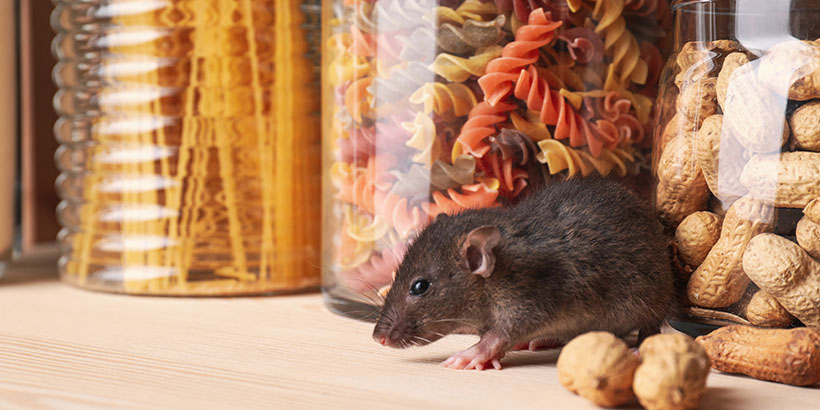It’s that time of the year again: The heat is cranked up and you’re wrapped in a blanket as you pull out all the stops to avoid the cold. The only problem? Rodents are looking to trade the chilly outdoors for somewhere warm and cozy this winter too.

Contact Your Landlord at the First Sign of Rodents
If you discover signs of rodent activity in your apartment, it is important to contact your landlord as soon as possible.
Your landlord is required to ensure you have a safe place to live, and that includes getting rid of rodents.
Help Prevent Rodents from Becoming Roommates
While you are waiting for a professional to come out to your apartment, what can you do to prevent future rodents from becoming unwelcome residents? Here are a few tips:
Look for Potential Entrance Points
Check the foundation of your home, including doors or other openings where the rodents may have entered. The pest control professional who comes to your apartment will be searching for these too, but it can help to already have some identified.
Keep Food in Sealed Containers
Mice and other rodents aren’t only attracted to the warmth of your house — they’re also attracted by food. By keeping food, especially snacks such as chips and crackers, in sealed containers, you reduce the chance of rodents coming into your house looking for a food supply.
Take Out the Trash Regularly
Much like keeping food locked up, regularly emptying the trash when there is food in it will help reduce the chance of rodents.
Keep Clutter to a Minimum
Piles of clutter can attract rodents that are looking for a place to nest. Keeping your apartment clean and tidy will reduce the number of places rodents can hide or choose to make a nest in.
The best way to prevent a future infestation is to make your apartment less desirable to rodents looking for somewhere to take up residence. That task starts with keeping your apartment clean and keeping an eye out for any clues of an infestation, including droppings, gnaw marks or signs of a nest.
Last reviewed: October 03, 2025
My Home in your inbox
Sign up to receive resources, tools and tips about buying, owning, refinancing, selling and renting a home in your inbox.